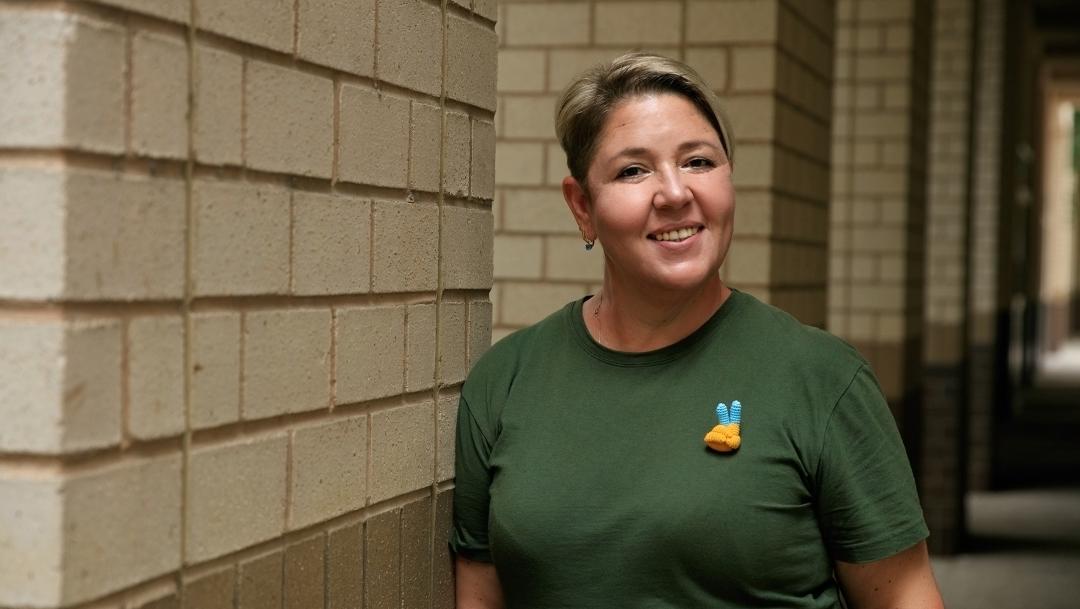
Psychologist Natasha Frolova is learning about collective trauma so she can help Ukrainians cope with the stress of war in her country. Photo by Han Parker
Natasha Frolova studies with expert Roxane Cohen Silver
The bloody war in Ukraine has devastated the country and its people are blistering from the psychological fallout.
“It’s collective trauma,” says Fulbright Scholar Natasha Frolova, who is spending nine months at UC Irvine, working with Roxane Cohen Silver, world-renown trauma coping expert.
“I am so pleased that Dr. Frolova chose to pursue her Fulbright fellowship at UC Irvine. Her selection as the only psychologist from Ukraine to come to the U.S. this year is a testament to her dedication and commitment to rigorous scholarship on the psychological impacts of war,” says Silver, vice provost of academic planning and institutional research and distinguished professor of psychological science, medicine, and public health. “There has been limited research conducted on residents of Ukraine since their country was invaded over 18 months ago. Because she was living in the country as the war broke out, Dr. Frolova has important insights that I hope can inform our research on collective trauma in Ukraine. I am honored to work with her.”
Frolova, a crisis psychologist and associate professor in the Department of Psychology and Social Work at Dnipro State University in Ukraine, remembers that soon after the war began in her country she read an article about collective trauma, written by Silver.
“When I read it, I understood that every word was about my country,” she recalls. “Roxy is the best specialist on trauma. That’s why I’m here. I want to learn from her so I can go back and help my people.”
Frolova says nearly everyone she meets in her country is suffering some form of trauma from the war.
“People have been displaced. They have seen their loved ones killed, their homes bombed and they had to run. They are shocked, panicked and have high anxiety,” she adds.
Her job as a crisis psychologist has been to listen to Ukrainian residents living through the war and try to help them cope.
“Everyone, without exception, has been touched by the war and have this collective trauma, Frolova says. “I’m devoted to researching this psychological phenomenon as it has this cascading character. For example, a husband or son in the Army dies, the house is destroyed and people are displaced, all because of this war. These cascading events influence people so greatly. As a result, the reactions of Ukrainians are different from reactions people have from collective trauma in other countries. And, I’m here to study this collective traumatizing process so I can build a system to help people to be strong and resilient after the war ends because the war will end sooner or later.”
The system she wants to build, she explains, would be like a structure or model, catering to individual needs, with the goal of helping people overcome their trauma. It helps that the country has come together and Ukrainians are helping each other.
“It is unbelievable the level of national identity right now,” Frolova says. “We believe in the Ukrainian armed forces because they give us the possibility to see the next morning so people’s support of the Army is very high. This is very important because the level of our connection is so warm and close and this gives us hope.”
— Mimi Ko Cruz